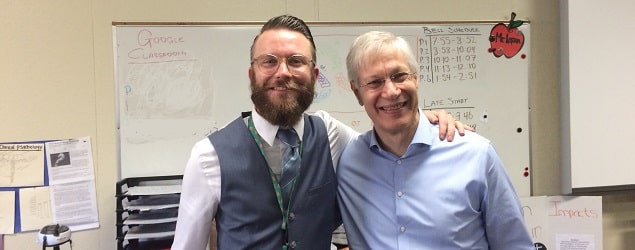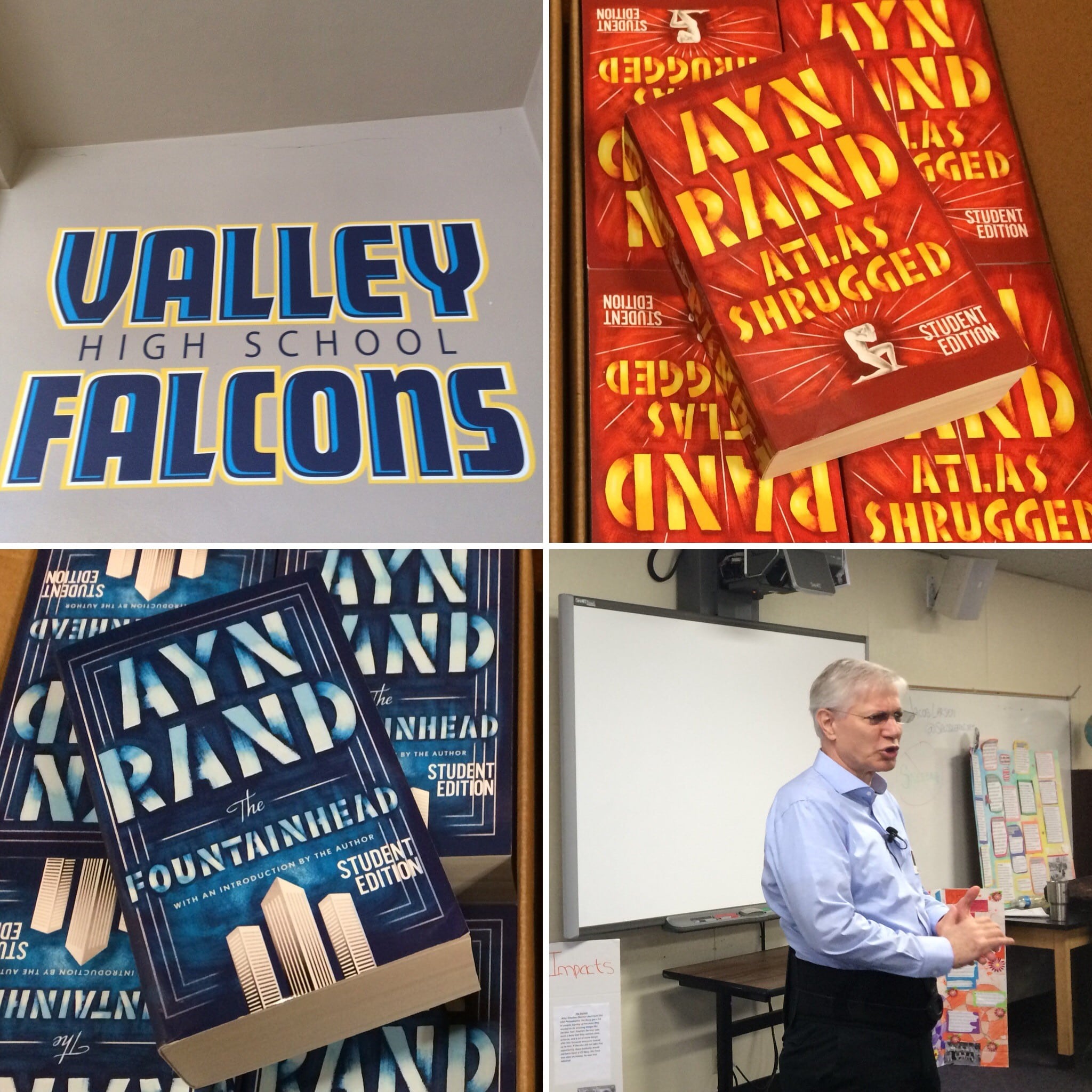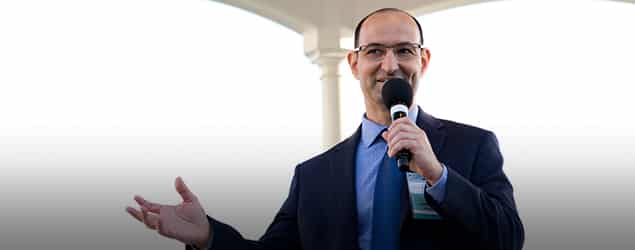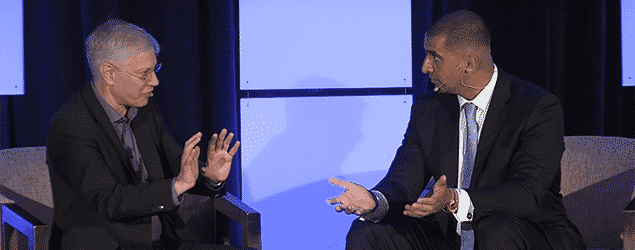Books for Life

“I got the blue one, which one did you get?” “I’m reading the red one first.” This is some of the chatter I hear as a group of about thirty high school students rush up to the front of a Santa Ana classroom to choose a free book from a cardboard box. These students have just listened to Yaron Brook, chairman of the board of the Ayn Rand Institute, speak to them about selfishness.
The “red” and “blue” books they are clutching are copies of Atlas Shrugged and The Fountainhead, with Penguin’s new red and blue book covers. These are students in Jacob Larsen’s class. He’s a history and psychology teacher at Valley High School in Santa Ana, California. Larsen, after seeing Brook on an episode of The Rubin Report, was intrigued. He found the educators page on aynrand.org and requested a copy of Atlas Shrugged. “I wanted to read Atlas Shrugged for myself to explore this controversial and wildly popular piece of fiction,” he says.
According to Larsen: “After donors graciously provided me copies of [Rand’s] more popular works, I began reading them at school in front of my U.S. History and Psychology students. When a few of my kids inquired about the plot of Atlas Shrugged, they demanded copies for themselves.” Students were hooked on the idea of reading the novel, “once they heard how popular the book has always been, the reactions it gets from society, and the counter-popular-logic ideas that it espouses,” says Larsen.
“Students who attend my school are in the lowest of economic strata with a plethora of struggles that most other kids in Southern California do not have to contend with as they take on the challenge of growing up. Dr. Brook spoke to kids who are Georgetown bound and some who are in gangs, some who have received acceptance letters to UC schools while some have already been to jail.”
When Larsen brought this story to the Ayn Rand Institute, a classroom set of books personally delivered by Yaron Brook was arranged. Larsen says: “Brook happened to be in town the same week as the books were to be delivered and volunteered to bring the books himself. He gave the students a lesson like none other they had yet received.”
Students filed into the classroom and pulled chairs up to line the back wall. Brook stood in the front of the class where he spoke about how reading Atlas Shrugged changed the trajectory of his life. “When I was sixteen, I read a book,” he began. “It challenged everything I believed in, everything my parents taught me, what my political leaders, teacher and preachers said.” Brook described reading Atlas as a struggle: “I would find myself agreeing with Ayn Rand, then throwing the book at the wall. By the end, I was completely convinced that she was right and everything I knew was wrong. It blew my mind.”
Brook talked to this group of seventeen- and eighteen-year-olds about conventional views of selfishness, the value of honing the skill of thinking, and the self-esteem and joy that comes from taking your work seriously. “It’s where you will get the self-confidence to enjoy your life,” he said.
“I grew up thinking that the moral purpose of life was to serve other people,” said Brook, and asked students to examine that view. “Why not make your life for you? You’ve got one shot at this, why not make it count?”
Larsen says that in a culture of “trying your best not to have ideas that differ from the pack,” Brook’s words are what “many kids might remember as the first time an adult spoke truth to them.” He says one student reflected that “he intended to disagree with the guest speaker but ‘couldn’t really challenge his point of view.’” The same student now thought that “instead of staying desolate and continuing [his] gloomy, pensive state,” he could use his “one shot at this life” in a more meaningful way.
“The students now proudly walk around campus with the biggest book they have ever begun to read, a book they decided to read for themselves and has the potential to change the trajectory of their lives,” says Larsen. He adds: “Thank you, Dr. Brook, for coming and speaking with my students, thank you to the Ayn Rand Institute for providing such a great service to our kids, and thanks to the donors for allowing life-changing ideas to continue to live on.”
The Ayn Rand Institute sends hundreds of thousands of books to classrooms across North America each year. Your contributions make that happen. Your dollars go toward the purchase and distribution of books that have the potential to change lives.
Here are two additional student reflections from the talk:
I thought it was very interesting to listen to Yaron Brook. His ideas were really extreme compared to what I’m used to hearing. I can relate to his way of thinking because I really saw the logic behind his ideas and they felt reasonable to me. For most of the time I was shocked at how much it made sense to think the way he is. I found myself thinking about a lot of things that I would be too afraid to think about and it made me feel less afraid to go along with him. When he talked about disregarding others for your own sake I had a big clash with that idea but I also found some of it reasonable. If the book will be this mind boggling I can’t wait to get into it!
I think yesterday’s session was very interesting. There were somethings I kind of disagreed with, but he brought up lots of things that made sense. It was cool to see his look on life. It did make me think of how I’m living my life and what I could do to make it “successful”. I liked him explaining how being selfish isn’t a bad thing. I also enjoyed the talk about love and how love is the most selfish feeling you could have.




